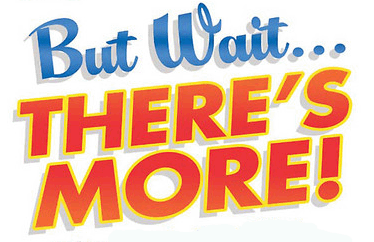5. Free Community College Is Not a Universal
Solution. President Obama stated as
his goal, “that two years of college becomes as free and universal in America as high school is today.” (emphasis added). However, not every job requires higher
education, and not every student will benefit from community college. To support his policy, President Obama claims that, “By the end of
this decade, two in three job openings will require some higher education.” Even assuming this figure is accurate, this means that one-third or more of job openings
require NO higher education whatsoever.
6. Free Community College Excuses Poor
Performing High Schools. Even today,
many students use community college as an extension of high school. They take remedial math and English classes
that should have been mastered well before college. These classes generally do not count toward a
college degree. Would free community
college relieve all pressure for our high schools to perform at acceptable
levels? Or perhaps free community
college is an admission that our high schools are already inconsistent at
preparing students for adult life.
7. Free Community College Dilutes All Degrees. We discussed President Obama’s plan for free
community college in my political science class. The students agreed that free stuff is valued
less. They worried that, if a community
college degree was "free," would that dilute the value of their
degrees? Will an AA degree become the
minimum requirement for entry-level jobs, as high school is today?
8. Free Community College Encourages
Irresponsibility. My students were
concerned that potential employers would not value “free” community
college. I wondered the same thing about
the students themselves. We all know –
parents especially – that people appreciate things more when they work for
them. As an example, 20-year-old Joe
works in retail, lives in a crappy apartment with 4 other guys, and goes to
community college at night. Joe is
paying his own way, perhaps with the help of scholarships and loans. You can bet that Joe will choose his classes
carefully, show up, and study enough to safely pass. On the other hand, you have 19-year-old Sam. Sam’s mom expects him to attend community
college and pays his tuition. Since Sam
likes living at home (free wi-fi), he reluctantly enrolls. He picks classes like “History of Rock and
Roll” and ceramics. He sleeps through
the lectures, and if he does pass, it is because his professor felt sorry for
him.
Of course, some students will be disciplined enough to take
full advantage of their education, regardless of whether it is costly or
free. These students probably do not need additional taxpayer help to complete their degrees.
9. Free Community College Detaches Students from
Their Communities.
As a third example, let’s say Jane enrolls in
government-provided, “free” community college.
In some ways, her situation is even worse than Sam’s. At least Sam has his mom to kick his butt,
and perhaps kick him out (someday). But
Jane is not accountable to anyone. If
she picks ridiculous classes, or sleeps through lectures, she does not feel the
pinch, and neither do her parents.
To reassure us that this scenario is unlikely, President
Obama says, “Understand, you’ve got to earn it – you’ve got to keep your grades
up and graduate on time.” Sam’s mom
probably tells him the same thing. But Sam’s mom has more tools at her disposal,
both for encouraging Sam and for making his life miserable. Sam’s mom loves him, and prays for him, and
mobilizes other family and friends to support him.
In contrast, the government cares nothing for Jane personally. It allows Jane to believe that she is
independent, slowly eroding her support system. If Jane fails, her funding
ends. How is Jane better off then?
Better for Jane to learn responsibility early, by paying as
she goes along. Better for Jane to be
depending on family and friends that love her, until she can stand on her own
two feet.
To summarize: better for Jane and her peers, better for our colleges, better
for our high schools, better for our employers, better for our communities,
better for our taxpayers and better for our freedoms that community college is
NOT free.
